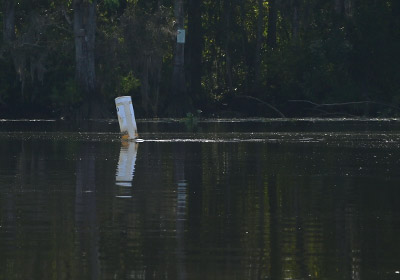Environment
Water district weighs costs and claims in ‘forever chemical’ suit

It will cost at least $28 million to remove contaminants known as “forever chemicals” from the drinking water provided by the Georgetown County Water and Sewer District. The utility must decide in the next few months whether to seek that money from chemical companies through settlement agreements pending in Federal District Court in Charleston.
“That’s an estimate,” said Ray Gagnon, the utility’s executive director. “Just the capital, not the operating cost. That would be putting in the filters and everything else needed, not operating the filters, not getting rid of the waste from the filters.”
The data and litigation around the chemicals known as PFAS is constantly evolving, he said. The EPA has proposed standards to limit per- and polyfluroalkyl substances in drinking water. At the same time, hundreds of lawsuits filed against 3M and DuPont and two spin-off companies were consolidated in federal court and proposed settlement agreements are now pending.
The DuPont companies have agreed to pay up to $1.185 billion to resolve claims. The 3M settlement is $10.5 billion to $12.5 billion.
The district’s board met this week with attorneys from the Columbia firm Richardson Thomas in an hour-long closed session to hear a presentation on the settlement agreements. Although the firm does not represent the district, Amy Hill, one of the attorneys, said the executive session was appropriate to protect “potential attorney-client privilege.”
Gagnon said the firm was one of several who had contacted the district since the 3M settlement was approved by U.S. District Court Judge Richard Gergel last month.
The board agreed to let Gagnon obtain legal advice on the settlement, but didn’t specify a firm.
Hearings are scheduled for December for the DuPont settlement and February for the 3M settlement. If they receive final approval, they will bar future claims from public water systems for PFAS contamination.
The systems can opt out of the agreement by filing a notice with the court. That would allow them to make future claims. But Gagnon pointed out that if the systems don’t opt out and don’t file claims “they get nothing.”
Under the broad terms of the settlement, the district would be eligible to file a claim.
It currently tests for PFAS, which has been linked to a range of health problems, but its results can’t be certified because the EPA hasn’t approved the test method, Gagnon said.
The state Department of Health and Environmental Control has a test site on the Waccamaw River in Horry County. It shows levels of PFAS “well over the limit” proposed by the EPA, Gagnon said.
The district treats surface water from the river to supply over 18,000 customers on the Waccamaw Neck.
The chemicals are measured in parts per trillion, which is equal to one second in 31,000 years. While the number is small, PFAS have been around since the 1940s and is used in a range of products such as non-stick cookware and fire-suppressing foam, which was the focus of the lawsuits. It doesn’t break down and it “bioaccumulates” in plants and animals.
There is currently one lab in Florida that can do the tests, but Gagnon said there are thousands of water systems.
“We can test, but we can’t certify the results. It’s ridiculous because DHEC is saying we need you to put these results on our monthly operating report, but you have to certify your monthly operating report,” Gagnon said. “Our association attorneys say don’t do that.”
Gagnon, who plans to retire early next year, met with the attorneys from Richardson Thomas last week. He said the firm has experience in utility litigation and will help develop better estimates of the costs that the district faces in treating PFAS.
“I haven’t had a chance to get our engineers on this to find out what it’s going to cost to put in four additional filters, plus redo our water plant,” Gagnon said.
Under the proposed agreement, water systems can’t claim that any future rate increases are due to 3M’s manufacture or handling of PFAS, but only the general need to treat for the chemicals. Gagnon said the original proposal said systems couldn’t raise rates. “I thought that was amazing,” he said.




